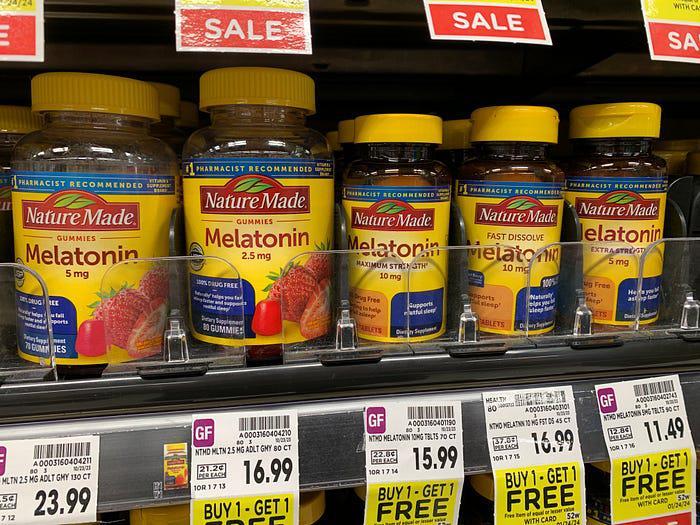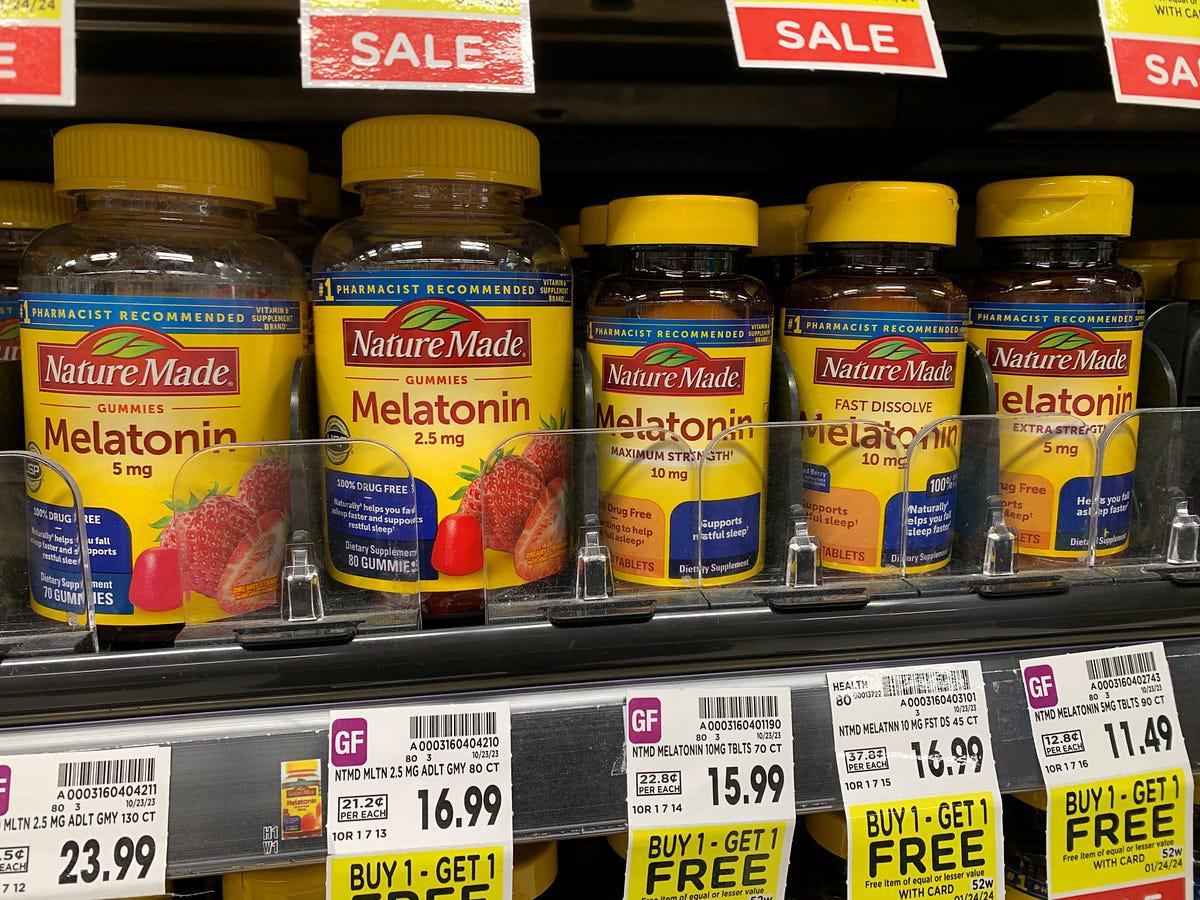When a friend casually told me over a pumpkin latte that she takes 10 milligrams every night and has been doing so for a few months. Sharing the stressful situation, we swapped remedies for sleepless nights. She said her doctor suggested melatonin to help, so she picked up a bottle at the local pharmacy. It wasn't until she ran out that she realized the dosage was 10 milligrams.
Even introducing 1mg of synthetic hormone into the human system seems like a lot, but 10 milligrams? I didn't even realize you could buy 10 milligram tablets. So, I drove to the local pharmacy, and this is what I saw: four out of five bottles were 5 or 10 milligrams.

With the arrival of fall and winter, shorter days and increased darkness naturally trigger your body to boost melatonin levels. Do some of us need more? One reason people with seasonal affective disorder often feel tired and depressed is due to higher melatonin levels.
Melatonin is a hormone primarily secreted by a pea-sized gland in the brain: the pineal gland. Melatonin helps regulate your internal clock - circadian rhythm - in response to the amount of sunlight. Darkness increases melatonin production, preparing you for bed and producing daylight margins to keep you awake for the upcoming day. Therefore, levels fluctuate throughout a given day and year, with the highest levels in fall and winter.
According to a study published in the Journal of Pineal Research, melatonin production in winter is 80% higher than in the summer months.
Should you retreat in the fall?
My friend is not the only one using melatonin
According to a study published in JAMA, by 2018, the amount of melatonin among Americans was more than double that of melatonin. It is sold almost everywhere; it is available over the counter for...
